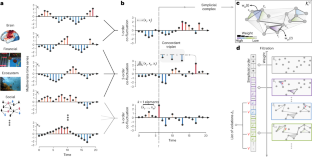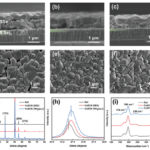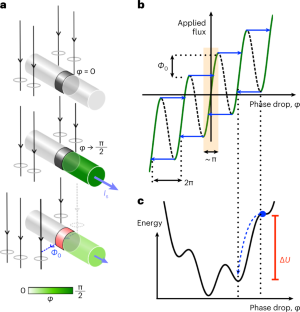EPFLの研究者は、神経科学、経済学、疫学などのデータから、複数の変数間の相互作用を初めて明らかにし、解釈することを可能にするネットワーク分析の新しいアプローチを開発しました。 EPFL researchers have developed a novel approach to network analysis that allows them to reveal and interpret, for the first time, interactions among multiple variables in data from neuroscience, economics, and epidemiology.
2023-01-16 スイス連邦工科大学ローザンヌ校(EPFL)
現実の現象の複雑さを解釈するための計算機的な枠組みを改善する必要があると考えたNeuro-X研究所のAmico氏とAndrea Santoro氏は、オーストリアの中央ヨーロッパ大学およびイタリアのCENTAI研究所の同僚と共同で、多変量の時系列データの高次組織を分析する方法を開発した。この画期的な研究成果は、『Nature Physics』誌に掲載されました。
「実データから高次情報を検出・推定する方法を開発した。これは、神経科学、金融、疫学から医学、気候科学、生態学まで、実世界のあらゆるシステムに応用できる可能性をもつ、高次数学の新しい分野の一部です」とアミコ教授は語る。
<関連情報>
- https://actu.epfl.ch/news/a-tool-to-detect-higher-order-phenomena-in-real-wo/
- https://www.nature.com/articles/s41567-022-01852-0
多変量時系列の高次組織化 Higher-order organization of multivariate time series
Andrea Santoro,Federico Battiston,Giovanni Petri & Enrico Amico
Nature Physics Published:02 January 2023
DOI:https://doi.org/10.1038/s41567-022-01852-0

Abstract
Time series analysis has proven to be a powerful method to characterize several phenomena in biology, neuroscience and economics, and to understand some of their underlying dynamical features. Several methods have been proposed for the analysis of multivariate time series, yet most of them neglect the effect of non-pairwise interactions on the emerging dynamics. Here, we propose a framework to characterize the temporal evolution of higher-order dependencies within multivariate time series. Using network analysis and topology, we show that our framework robustly differentiates various spatiotemporal regimes of coupled chaotic maps. This includes chaotic dynamical phases and various types of synchronization. Hence, using the higher-order co-fluctuation patterns in simulated dynamical processes as a guide, we highlight and quantify signatures of higher-order patterns in data from brain functional activity, financial markets and epidemics. Overall, our approach sheds light on the higher-order organization of multivariate time series, allowing a better characterization of dynamical group dependencies inherent to real-world data.



